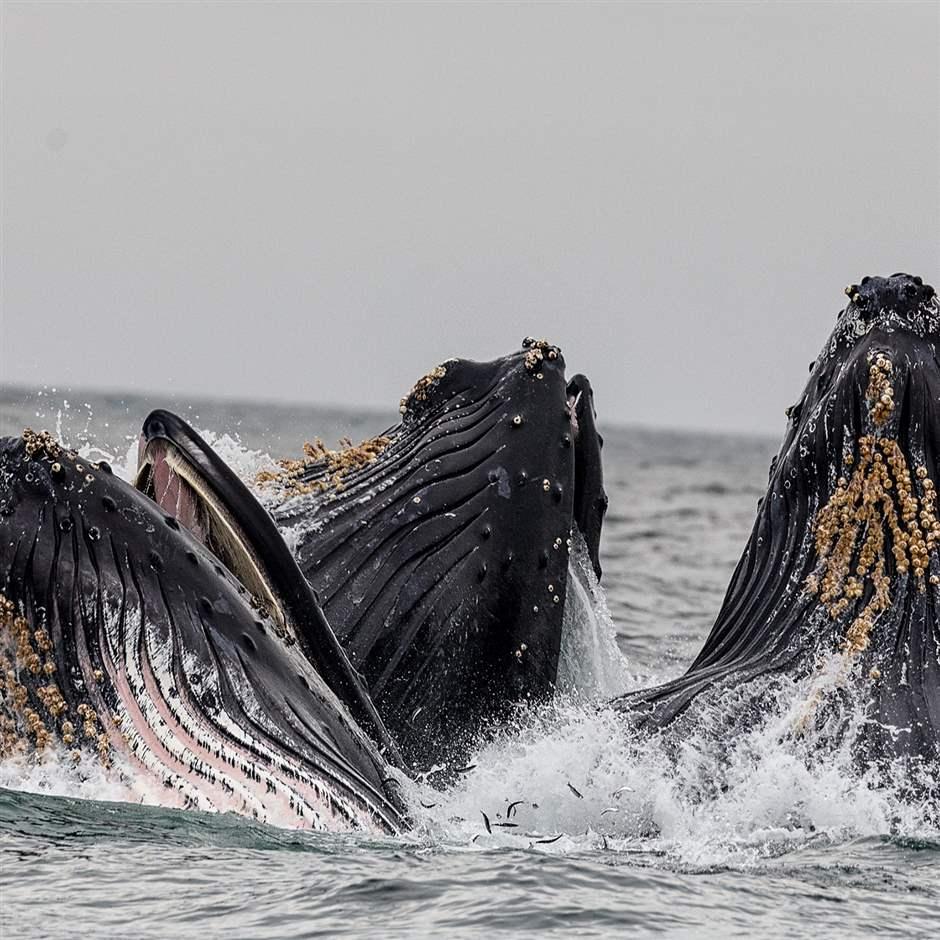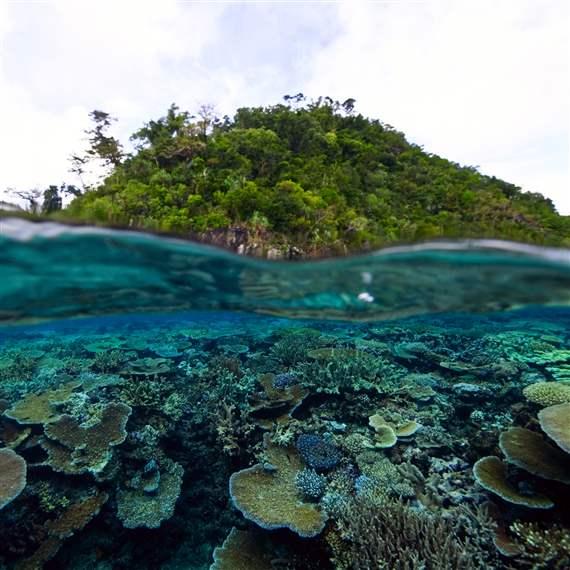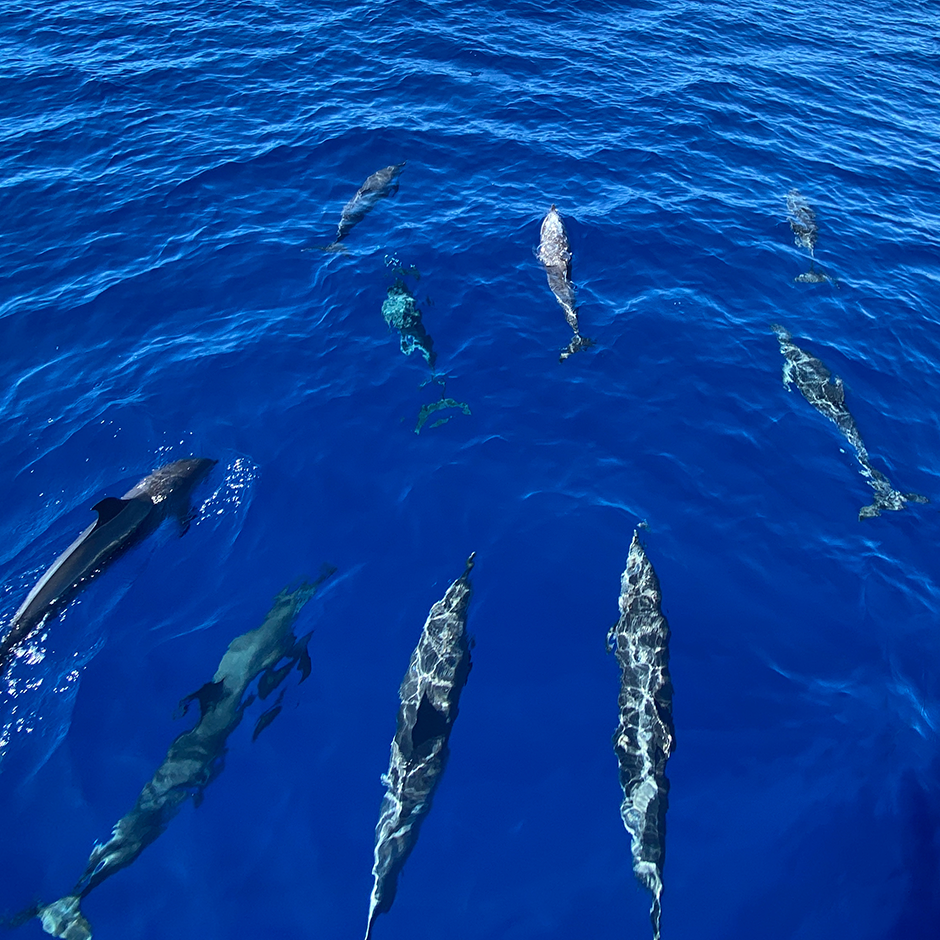
Ocean Conservation
Rubriques
- Topics
- Ocean Conservation
- Antibiotics
- Arts & Culture
- Biomedical Research
- Economic Mobility
- Family Finances
- Fiscal & Economic Policy
- Global Trends
- Health Care
- Higher Education
- Hispanics
- Infrastructure
- Internet & Tech
- Land Conservation
- Media & News
- Religion
- Retirement
- Social and Demographic Trends
- U.S. Policy
- U.S. Politics
- U.S. State Policy
- Behavioral Health
Life on Earth depends heavily on its magnificent and complex ocean ecosystems. But the seas are suffering from overfishing, loss of key habitat—such as coral reefs—and the depletion of important species from sharks to small fish that are the basis for the entire food web.
Pew’s ocean work includes efforts to create large marine reserves; end illegal fishing; protect key species such as penguins, sharks, tuna and forage fish; and establish policies that protect, maintain, and restore the health of marine ecosystems.
Latest Research

Fact Sheet
October 15, 2020 Un système de surveillance électronique efficace nécessite la contribution des parties prenantes

Ocean, People, Planet
There is only one ocean, essential to the life of everyone on Earth—and it faces perils like never before
The ocean covers nearly three-fourths of the Earth. Vast and powerful, it is central to the life of everyone on the planet, supplying more than half of the world’s oxygen, providing food, recreation, and supporting economic vitality. Yet for all its seeming invincibility, the ocean has never been more in danger. Its very chemistry is changing as ocean waters become more acidified through climate change. Its inhabitants—from large sharks to tiny crustaceans the size of a human finger—are under assault with XX percent of fish stocks overfished. And ocean levels continue to rise, challenging the barriers separating people from water.
The latest land conservation wins, action alerts, and more (monthly).
Featured Facts
OUR WORK
Related Projects

The Lenfest Ocean Program is a grantmaking program that funds scientific research on policy-relevant topics concerning the world’s oceans and communicates the results of the supported research to decision makers and other interested audiences....
Read More
Science provides a critical foundation for effective environmental conservation measures. Pew pursues a diverse portfolio of scientific projects to answer key questions and provide practical data, and its experts develop, support, and communicate...
Read More
Coastal wetlands—salt marshes, seagrass beds, and mangrove forests—host some of the richest biodiversity on the planet, acting as refuge for wildlife and nurseries for juvenile fish, including species important for local communities and livelihoods....
Read More
Chile’s Patagonia region is one of the world’s last largely intact natural areas. Its glaciers, hardwood forests, rugged coastline and wild fjords remain remarkably untouched. Pew is partnering with nongovernmental organizations, universities, and...
Read More
Canada contains much of the planet’s boreal forest—an ecosystem found only in high northern latitudes—as well as the world’s longest shoreline, which borders the Pacific, Arctic, and Atlantic oceans. With effective protections in place, Canada can...
Read More
Pew is working to secure comprehensive and complementary rules and consequences for international fisheries management to support healthy, resilient marine ecosystems and fisheries over the long term....
Read More
To meaningfully change the way the ocean’s natural assets are respected and protected, The Pew Charitable Trusts is working closely with governments, key stakeholders and partner organizations to develop policy mechanisms to address the negative...
Read More
In an effort to reduce the amount of plastic waste entering marine waters, Pew will work with governments, industry, scientists, and other nongovernmental organizations (or civil society) to better understand this global problem and offer solutions. ...
Read More
From the tropical north to the red centre and the surrounding oceans, Australia is one of the wildest and most intact places on Earth. An ancient place of stark extremes and exquisite beauty, Australia for tens of thousands of years has hosted the...
Read More
The lands and waters of the United States are national and global treasures. From the Atlantic seaboard to the Pacific coast and Alaska, the landscapes we call home include mountains, deserts, rivers, freshwater wetlands, coastal areas, and oceans. ...
Read More
Areas along the west coast of North America face multiple threats that are altering the ocean ecosystems and ways of life for coastal communities. Significant declines in what once were considered inexhaustible fisheries, as well as rapidly warming...
Read More









